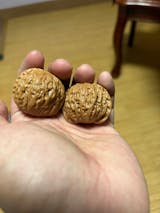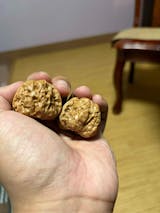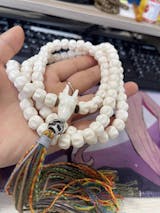What is Feng Shui and How to Apply it in Bedroom Design
Feng Shui is an ancient Chinese practice that focuses on creating harmony between individuals and their environment by balancing the flow of energy, or "qi." It involves the strategic placement of objects and the design of spaces to promote health, happiness, and prosperity. In a home, the bedroom is one of the most important spaces to consider for Feng Shui because it is where we rest, rejuvenate, and spend a significant portion of our lives. The Feng Shui Bedroom layout, décor, and location can all influence the flow of energy and, consequently, our well-being.

The Importance of Bedroom Location in Feng Shui
When applying Feng Shui principles to your home, the location of each family member's bedroom is crucial. The position of the bedroom can affect health, relationships, and overall well-being. Choosing the right spot for each family member's bedroom should be a priority, second only to selecting the home itself.
The ideal bedroom location depends on various factors, including the direction the room faces and the placement of key furniture like the bed. Feng Shui emphasizes the interaction between the individual's energy and the room's energy. Therefore, arranging the bedroom and bed placement to align with Feng Shui principles can positively impact the residents' health, fertility, relationships, and even mental clarity.

Basic Principles of Bedroom Feng Shui Design
Designing a Feng Shui bedroom involves more than just choosing furniture and décor; it requires careful consideration of how the room's layout and elements influence the flow of energy. Here are some fundamental principles to keep in mind:
Bed Placement: The bed should be placed in a "command position," where you can see the door but are not directly in line with it. This placement allows for a sense of security and control, which is essential for restful sleep.
Bed Orientation: The bed should ideally be positioned against a solid wall to provide support and stability. The headboard should be solid, symbolizing strength and protection.
Room Shape: Bedrooms should have a regular shape, such as square or rectangular. Oddly shaped rooms can disrupt energy flow and create an imbalance.
Color Scheme: Soft, soothing colors like beige, soft blues, and greens are recommended in Feng Shui for creating a calm and peaceful atmosphere in the bedroom.
Declutter: A clutter-free environment is essential in Feng Shui. Clutter can block the flow of energy, leading to stress and restlessness.
Lighting: Natural light is vital, but it should be soft and diffused. Avoid harsh overhead lighting; instead, opt for lamps that create a warm and inviting glow.
Avoid Electronics: Minimize the use of electronics in the bedroom. The electromagnetic fields they emit can interfere with sleep and create negative energy.
Art and Décor: Choose artwork and décor that inspire positive emotions and reflect tranquility. Avoid images or objects that evoke negative feelings or chaotic energy.

Bedroom Feng Shui Directions
When positioning your bed, it's important to consider some Feng Shui principles to avoid negative energy and harmful influences. Avoid placing the bed with the headboard facing west. Instead, orient the headboard towards the east, a direction known in Feng Shui as "Dong Si Ming," which represents vitality, health, and hope. This orientation is also believed to enhance one's career and wealth, as the east symbolizes the sunrise and new beginnings.
Conclusion
Feng Shui is a powerful tool for creating a bedroom environment that supports health, relationships, and overall well-being. By understanding the basic principles of Feng Shui, selecting the right location for your bedroom, and carefully arranging the space, you can transform your bedroom into a sanctuary of peace and positive energy. Whether you're designing a new bedroom or adjusting an existing one, applying these Feng Shui tips can lead to a more harmonious and fulfilling life.
Related Articles:
What is Feng Shui and How Does it Work?
The Power of Purple Crystal in Feng Shui




























































